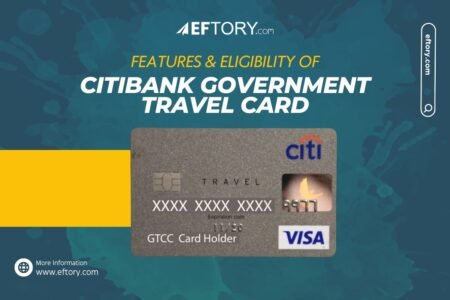Summary: The “Top 10 Credit Cards with No Foreign Transaction Fee” offers various options for travelers seeking to avoid unexpected fees abroad. These cards provide rewards, no or less annual fees, and other benefits to cater to different spending habits and financial needs.
Traveling overseas is an interesting adventure, however, unexpected fees can quickly spoil your journey. One hidden fee to be aware of is foreign transaction charges.
- Foreign transaction fees are charges collected by your credit card issuer when you use your card in a foreign country or for a transaction with a foreign merchant, even if you’re making the purchase online.
- These fees, typically a percentage (frequently around 1-3%) of every transaction, are charged via your credit card company whenever you operate your card in a foreign currency.
- While these prices may also appear small at first, they can add up quickly, specifically in case you’re making more than one purchase all through your journey. Let’s suppose you buy a product for $50 in a foreign country. With a 3% overseas transaction price, you’ll be charged $1.50 more, bringing your overall to $51.50. Paying a bit more for one purchase might not surprise us, but those higher fees can quickly add up to hundreds of dollars throughout your trip, which can significantly affect your travel budget.
- Using a credit card with no foreign transaction fees removes this hidden cost. With these cards, you pay the exact exchange rate set by Mastercard or Visa, avoiding any extra charges. This helps you budget more accurately and avoid unpleasant surprises when your credit card bill arrives. So, in case you’re making plans for an international ride, do not forget to use a credit card without foreign transaction costs to save money and enjoy your travels.
Things to consider when choosing Best Credit Cards with no foreign transaction fees:
- Annual fees: Some cards with no foreign transaction fees have annual fees, while others do not. Decide if the rewards and benefits justify the annual fee.
- Rewards programs: Many cards with no foreign transaction fees also offer rewards programs, such as cashback or travel points. Choose a card that offers rewards that align with your spending habits.
- Interest rates: If you plan to carry a balance on your card, be sure to choose a card with a low interest rate.
- Creditworthiness: Cards with the best rewards and benefits typically require good or excellent credit.
- Foreign acceptance: Consider which payment networks (Visa, Mastercard, American Express, and Discover) are most widely accepted in your destination country.
1. Capital One Quicksilver Cash Rewards Credit Card:
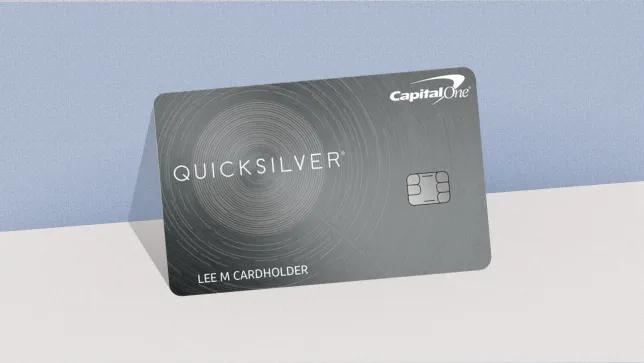
- Rewards: Earns 1.5% cash back on all purchases.
- Annual Fee: $0
- Interest Rate: 17.99% – 26.99% (Variable)
- Network: Mastercard
- Who’s it for? Anyone who wants a simple, no-fee card with cash back on all purchases.
| Pros | Cons |
|---|---|
| No annual fee: Good for people who don’t want to pay extra charges. | Lower cash back compared to some cards: Other cards give more rewards. |
| Flat-rate cash back: Get 1.5% cash back on all purchases. No need to track categories. | No intro APR offer: You don’t get a period with no interest. |
| Wide acceptance: Accepted at most stores worldwide. | Variable interest rate: Interest rates can change, meaning higher charges. |
| Cell phone protection: Protects your phone from theft or damage. | Security deposit required for secured version: If you have limited credit history, you might need to put down a deposit. |
| Extended warranty: Gives you more time for warranty on purchases. | |
| Purchase security: Helps if your purchase is stolen or damaged. |
2. Capital One Venture Rewards Credit Card:

- Rewards: Earn 2 miles per dollar spent on all purchases
- Annual Fee: $95
- Interest Rate: 19.99% – 29.99% (Variable)
- Network: Mastercard
- Who’s it for? Good choice for frequent travelers who value flexibility in redeeming travel rewards.
| Pros | Cons |
|---|---|
| Earns miles on all purchases: You get 2 miles per dollar spent on every purchase, no matter what you buy. This is simple and good for people who don’t want to track spending categories. | Annual fee of $95: The card costs $95 every year. While it can be worth it for frequent travelers, it might not be worth it for occasional travelers or those who like cash back. |
| Flexible redemption options: Use your miles for flights, hotels, car rentals, and more through Capital One Travel or directly with travel providers. You can use your rewards for the travel you want. | Variable interest rate: The interest rate on purchases and balance transfers can change based on your creditworthiness. If you don’t pay your balance in full, you might pay more in interest. |
| No foreign transaction fees: You don’t pay extra fees when you buy things in foreign currencies. You only pay the regular exchange rate. | Rewards might not be as good for non-travelers: If you don’t travel a lot, the card might not be as valuable compared to cards with cash back or other rewards. |
| Wide acceptance through Mastercard network: The card works at many stores worldwide, which is good for travel and everyday shopping. |
3. Discover it® Cash Back:
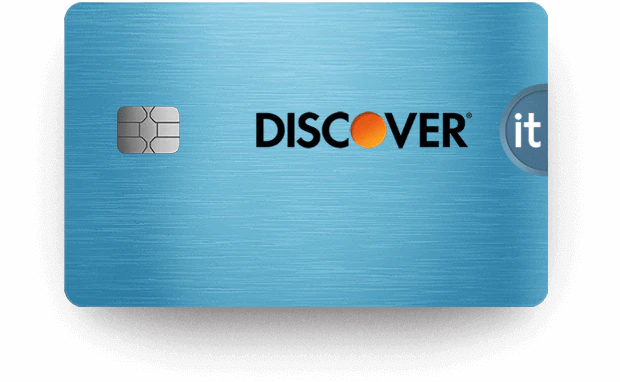
- Rewards: Earns 5% cash back in rotating bonus categories, 1% on all other purchases.
- Annual Fee: $0
- Interest Rate: 16.99% – 27.99% (Variable)
- Network: The Discover it® Cash Back is accepted at millions of merchants worldwide that display the Discover and Diners Club International acceptance marks. In some regions, particularly Asia, the card might also be accepted at merchants displaying the UnionPay or JCB logos.
- Who’s it for? Shoppers who want to maximize cash back in rotating categories and avoid foreign transaction fees.
- While Discover itself doesn’t charge foreign transaction fees, the merchant or your ATM provider might. It’s crucial to inquire about any fees before making a transaction.
- Many countries outside the US use chip and PIN technology for card transactions. If your Discover it® Cash Back card doesn’t have a chip and PIN functionality, you might not be able to use it at certain merchants or ATMs. It’s recommended to verify with Discover if your card has a chip and PIN enabled and obtain a PIN if necessary before traveling.
| Pros | Cons |
|---|---|
| High cash-back: Earn 5% cash back in rotating bonus categories. Boosts rewards if used strategically. | Rotating bonus categories: Requires planning and tracking to maximize rewards. |
| No annual fee: Good for people who don’t want extra charges. | Lower cash back on non-bonus purchases: Only get 1% cash back outside bonus categories. |
| Wide acceptance: Discover is accepted at many stores worldwide. | Activation required for bonus categories: Must activate bonus categories each quarter. |
| Cell phone protection: Protects your phone from theft or damage. | Security deposit required for secured version: Need a deposit for limited credit history. |
| Free access to FICO score: Monitor your credit score without extra fees. |
4. Deserve® EDU Mastercard® for Students:
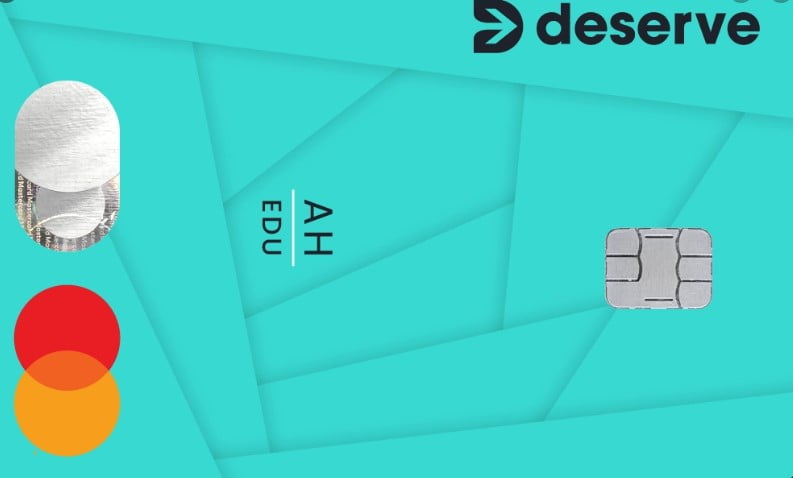
- Rewards: Earns 1% cash back on all purchases.
- Annual Fee: $0
- Interest Rate: 16.25% – 24.25% (Variable)
- Network: The Deserve® EDU Mastercard® for Students enjoys excellent foreign acceptance due to its affiliation with the Mastercard® network.
- Who’s it for? Students building credit who want a no-fee card with basic benefits like cell phone protection.
| Pros | Cons |
|---|---|
| No annual fee: This is helpful for students on tight budgets. | Lower credit limit: Comes with a lower credit limit compared to some student cards. |
| Cell phone protection: Protects against theft or damage. | No rewards program: Doesn’t offer cash back or points on purchases. |
| Builds credit history: Responsible use helps build credit. | Higher interest rates: Approval without a credit score might lead to higher rates. |
| No credit score or SSN required: Accessible to international students. | Limited benefits: Lacks travel insurance, purchase protection, or extended warranties. |
| Mastercard network acceptance: Widely accepted worldwide. |
5. Citi Double Cash Back Card:
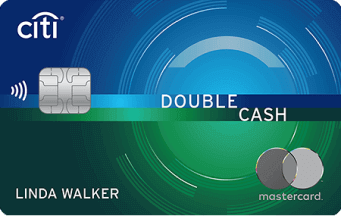
- Rewards: Earns 1% cash back on purchases, and another 1% when you pay your balance in full (effectively 2% total).
- Annual Fee: $0
- Interest Rate: 18.24% – 28.24% (Variable)
- Network: Mastercard
- Who’s it for? Value-conscious individuals who want a simple cash-back card with no foreign transaction fees.
| Pros | Cons |
|---|---|
| Double Cash Back: Earn 2% cash back on all purchases. | No Introductory APR Offer: No 0% APR period on purchases. |
| No Annual Fee: Good for avoiding extra charges. | Variable Interest Rate: Interest rate can change, leading to higher charges if you carry a balance. |
| Wide Acceptance: Mastercard network ensures global acceptance. | Lower Rewards Compared to Some Cards: Some cards offer higher rewards. |
| No Foreign Transaction Fees: No extra fees on purchases in foreign currencies. | Limited Benefits: Lacks additional benefits found in other cards. |
| Simplicity: Easy-to-understand flat-rate cash-back system. |
6. Fidelity Rewards Visa Signature Card:
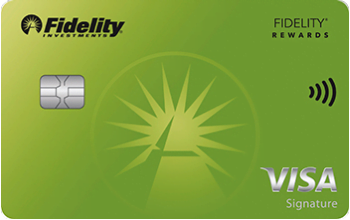
- Rewards: Earns 2% cash back on purchases deposited in a Fidelity account (1% if not deposited).
- Annual Fee: $0
- Interest Rate: 16.49% – 25.49% (Variable)
- Network: Visa
- Who’s it for? Fidelity investors who want to maximize cash back on all purchases and avoid foreign transaction fees.
| Pros | Cons |
|---|---|
| No annual fee: Appeals to those avoiding extra charges. | Lower cash back compared to some cards: Other cards offer higher rewards. |
| Flat-rate cash back: Earns 2% cash back on all purchases. | Limited benefits: Lacks additional benefits found in premium cards. |
| No foreign transaction fees: No extra charges on foreign purchases. | Variable interest rate: Interest rates can fluctuate, potentially increasing charges. |
| Additional benefits for Fidelity investors: Cash-back automatically deposited into qualifying Fidelity accounts. | |
| Visa network acceptance: Widely accepted worldwide. |
7. Wells Fargo Autograph℠ Card:
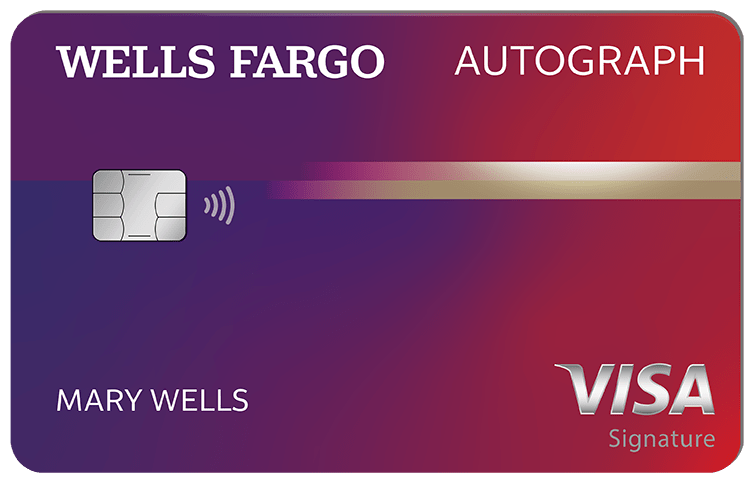
- Rewards: Earn points redeemable for travel, cash back, or merchandise.
- Annual Fee: $0
- Interest Rate: 17.24% – 27.24% (Variable)
- Network: Visa
- Who’s it for? Frequent travelers who want airport lounge access, travel insurance, and no foreign transaction fees, are willing to pay an annual fee.
| Pros | Cons |
|---|---|
| No annual fee: Great for those avoiding extra charges. | Lower rewards compared to some cards: Other cards offer higher rewards. |
| Bonus rewards: Earn 3x points on various categories like restaurants, gas stations, and transit. | Variable interest rate: Interest rate can fluctuate, potentially increasing charges. |
| Points are redeemable for cash back, travel, gift cards, or merchandise. | Points may not be as valuable for travel: Redemption value may be lower compared to travel-specific cards. |
| No foreign transaction fees: No extra charges on foreign purchases. | |
| Cell phone protection: Protects against theft or damage. |
8. Chase Sapphire Preferred® Card (Annual Fee Applies):
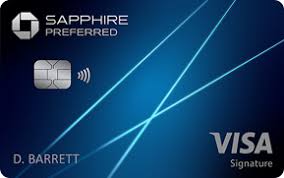
- Rewards: Earns points on travel and dining, transferable to travel partners or redeemed for cash back/travel.
- Annual Fee: $95
- Interest Rate: 19.24% – 29.24% (Variable)
- Network: Visa
- Who’s it for? Travel enthusiasts who want flexible rewards, travel insurance, and no foreign transaction fees, are willing to pay an annual fee.
| Pros | Cons |
|---|---|
| Strong rewards program: Earns points on travel and dining, transferrable to valuable travel partners. | Annual fee: $95 fee to consider against rewards and benefits. |
| Travel benefits: Includes travel insurance, auto rental collision damage waiver, and airport lounge access. | Variable interest rate: Rate fluctuations may lead to higher charges if you carry a balance. |
| No foreign transaction fees: No extra charges on foreign purchases. | Points transfer can be complex: Transferring points to travel partners may involve extra steps. |
| Bonus points on travel booked through Chase: Earn extra points on Chase Ultimate Rewards® travel bookings. | Lower rewards on non-travel and dining categories. Only 1 point per dollar spent. |
| Points can be redeemed for cash back or statement credits. Offers flexibility in reward usage. |
9. Bank of America® Travel Rewards Credit Card for Students:
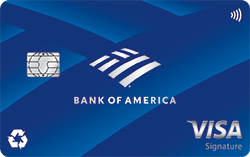
- Rewards: Earns points on travel and dining, redeemable for travel or cash back.
- Annual Fee: $0
- Interest Rate: 17.24% – 27.24% (Variable)
- Network: Mastercard
- Who’s it for? Students who travel occasionally and want a no-fee card with travel rewards and no foreign transaction fees.
| Pros | Cons |
|---|---|
| No annual fee: Good for students on a tight budget. | Lower rewards compared to some cards: Earns average points per dollar. |
| Unlimited 1.5 points per dollar: Earn rewards on all purchases. | Limited travel benefits: Lacks some travel perks like insurance or lounge access. |
| No foreign transaction fees: No extra charges on foreign purchases. | Variable interest rate: Rate fluctuations may lead to higher charges if you carry a balance. |
| Redemption flexibility: Redeem points for various travel options. | |
| Cell phone protection: Protects against theft or damage. |
10. Capital One Quicksilver Secured Credit Card:
- Rewards: Earns 1.5% cash back on all purchases.
- Annual Fee: $0 after the first year ($95 annual fee in the first year)
- Interest Rate: 21.99% (Variable)
- Network: Mastercard
- Who’s it for? This card is a good option for those with limited credit history or a history of bad credit. By using the card responsibly and making payments on time, you can improve your credit score.
| Pros | Cons |
|---|---|
| No annual fee: Good for those building credit. | Security deposit required: Initial deposit becomes credit limit. |
| Potential for credit limit increase: Capital One might increase the limit after responsible use. | Lower credit limit compared to unsecured cards: Limits spending power initially. |
| Builds credit history: Responsible use helps build credit. | Variable interest rate: Fluctuations may lead to higher charges if you carry a balance. |
| No foreign transaction fees: No extra charges on foreign purchases. | Limited benefits: Lacks travel insurance, purchase protection, or extended warranties. |
FAQs About Credit Cards:
What is a credit card?
A credit card is a plastic payment card that allows you to borrow money from a bank or credit union to make purchases. You have a credit limit, which is the maximum amount you can borrow. You’ll receive a monthly statement with your balance and minimum payment due.
What are the different types of credit cards?
There are many credit cards available, each with its own rewards programs, benefits, and interest rates. Here are some common types:
Cashback credit cards: Earn cash back on purchases.
Travel credit cards: Earn rewards like miles or points towards travel.
Rewards credit cards: Earn points redeemable for various rewards.
Balance transfer credit cards: Used to transfer balances from other cards with a lower interest rate (often for a limited time).
Student credit cards: Designed for students with limited credit history.
How do I apply for a credit card?
You can usually apply for a credit card online or at your bank or credit union. You’ll need to provide basic information like your name, address, Social Security number, and income.
What is a credit limit?
Your credit limit is the maximum amount you can borrow on your credit card. It’s important to stay below your credit limit to avoid exceeding credit card debt and penalties.
Can I have an authorized user on my credit card?
Yes, you can add authorized users to your credit card account. Authorized users will receive their card and their purchases will be added to your monthly statement.
What happens if I miss a credit card payment?
Missing a credit card payment can result in late fees, penalty interest rates, and damage to your credit score.






